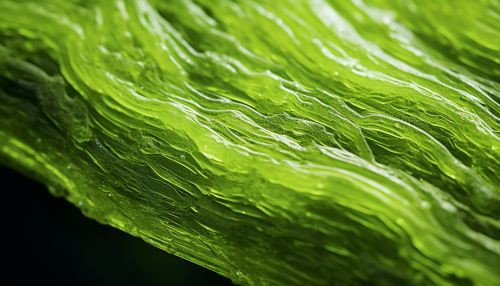The Role of Algae in Biofuel Production
Introduction
Algae, a diverse group of aquatic organisms, play a critical role in biofuel production. This is primarily due to their ability to produce lipids, proteins, and carbohydrates in varying quantities, which can be processed into different types of biofuels. The use of algae in biofuel production offers a sustainable and environmentally friendly alternative to fossil fuels, contributing to the global efforts towards renewable energy production and climate change mitigation.


Algae and Biofuel Production
Algae are photosynthetic organisms that convert sunlight, carbon dioxide (CO2), and nutrients into biomass. This biomass can be converted into different forms of energy, including biofuels. The process of biofuel production from algae involves several steps, including cultivation, harvesting, drying, and extraction of oil, followed by refining into biofuel.
Algae Cultivation
Algae cultivation is the first step in the biofuel production process. This involves growing algae in open ponds, photobioreactors, or fermenters. The choice of cultivation system depends on the type of algae, the climatic conditions, and the available resources. The main aim of this step is to maximize the production of biomass, which is directly proportional to the amount of biofuel that can be produced.
Algae Harvesting and Drying
Once the algae have grown to the desired level, they are harvested. This can be done through various methods such as flocculation, flotation, filtration, or centrifugation. The harvested algae are then dried to reduce the moisture content, which facilitates the extraction of oil.
Oil Extraction and Biofuel Production
The dried algae are subjected to oil extraction processes, which can be mechanical (such as pressing) or chemical (using solvents). The extracted oil is then refined into biofuel through processes such as transesterification, in which the oil is reacted with an alcohol to produce biodiesel.
Advantages of Using Algae for Biofuel Production
The use of algae for biofuel production offers several advantages over traditional biofuel feedstocks. These include:
- High yield: Algae can produce a significantly higher amount of biofuel per unit area compared to other feedstocks such as corn or soybeans.
- Non-food resource: Algae do not compete with food crops for arable land, making them a sustainable option for biofuel production.
- CO2 absorption: Algae absorb CO2 during photosynthesis, helping to reduce greenhouse gas emissions.
- Bioremediation potential: Algae can be used to treat wastewater, absorbing nutrients and contaminants during growth.
Challenges and Future Perspectives
Despite the potential benefits, the use of algae for biofuel production faces several challenges. These include high production costs, energy-intensive harvesting and drying processes, and the need for large-scale cultivation systems. However, ongoing research and technological advancements are expected to overcome these challenges and make algae-based biofuels a viable alternative to fossil fuels in the future.
